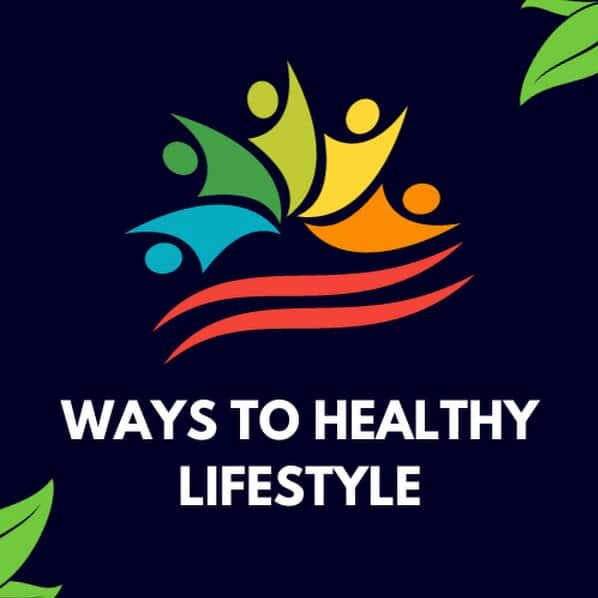Do you know that your heart, that fist-sized engine in your chest, beats about 100,000 times a day and pumps roughly 5.7 liters of blood throughout your body per minute? It’s an astounding feat, and keeping this organ in top shape is paramount to your overall health. That’s right, heart health isn’t just a segment of your well-being; it’s the bedrock upon which everything else rests.
In this post, we will discuss some tips on how to improve heart health and reduce the risk of heart disease.
You’re going to find out about the silent culprits behind common heart diseases. Conditions like hypertension, coronary artery disease, and arrhythmias don’t just emerge out of nowhere. They are caused due to different factors such as poor diet, lack of exercise, stress, and genetic predispositions. Considering that heart disease remains the leading cause of death globally, it’s crucial to recognize the risks and how to mitigate them.
And this isn’t just about averting the negative; it’s also about cultivating a heart-healthy lifestyle that can boost your energy and improve your quality of life. So let’s set the stage for what’s coming next: implementing simple yet effective lifestyle tweaks that can make a big difference to your heart health. These are real, actionable strategies that you can start applying in your life today to ensure a stronger, happier heart.
5 Lifestyle Tweaks for Improved Heart Health

When it comes to your heart health, small changes in your daily routine can make a big difference. I’m going to guide you through the pivotal shifts that can help fortify your heart.
Physical activity
Physical Activity is a cornerstone of heart health. It’s not just about intense workouts \’ it’s also about being more active throughout your day. Aim for at least 150 minutes of moderate aerobic exercise per week, or 75 minutes of vigorous activity, to get your heart rate up and improve circulation.
Food Proportion
Now what about what’s on your plate? Choose something that resonates with you, emphasizing fruits, vegetables, whole grains, and proteins. Foods rich in omega-3 fatty acids, like flaxseeds, are great for your heart. Limit intake of saturated fats, sodium, and added sugars to keep blood pressure and cholesterol levels in check.
Weight
Your weight plays a critical role too. If you’re overweight, shedding even a few pounds can improve heart function and help lower blood pressure, cholesterol, and blood sugar levels. It’s not about chasing fad diets. You can always adjust your approach down the road just commit to healthier food choices and consistent exercise.
Stress
I’m here to help you with stress as well. Chronic stress can take a toll on your heart. Strategies like mindfulness, yoga, and spending time with loved ones can protect your heart against the effects of stress. Don’t forget to laugh \’ it’s good for your heart!
Lastly, let’s talk about sleep. Quality sleep is as crucial as diet and exercise. Adults should aim for 7-9 hours of uninterrupted sleep per night to support heart health. If sleep evades you, consider establishing a calming bedtime routine and consult a healthcare professional if difficulties persist.
Medical Monitoring and Continuous Care: Your Heart’s Assurance of Health
I will let you in on a little secret: consistent medical monitoring and continuous care can be your heart’s strongest allies. It’s not just about tweaking your lifestyle; it’s also about keeping tabs on the internal workings of your heart. This is where regular medical check-ups come into play. During these visits, your healthcare provider can conduct heart screenings and identify any early signs of cardiovascular issues.
Managing blood pressure and cholesterol is not optional for heart health; it is critical. High blood pressure and elevated cholesterol are like silent alarms for heart disease, often going unnoticed until it’s too late. By keeping these levels in check, you are taking proactive steps to defend your heart against future problems.
Family’s Health History
Now, knowing your family’s heart health history might seem like a simple task, but it has profound implications. This knowledge gives you an edge, helping you to stay one step ahead by understanding potential genetic risk factors. And when certain patterns emerge, you can work with your healthcare provider to take preemptive measures.
10 Best Foods For a Healthy Heart

- Flax seeds: Rich in omega-3 fatty acids, which can lower the risk of heart disease.
- Leafy Green Vegetables: High in vitamins, minerals, and antioxidants, which can help reduce the risk of heart disease. Examples include spinach, kale, and collard greens.
- Whole Grains: Provide fiber, which can help lower cholesterol levels and improve heart health. Examples include oats, quinoa, brown rice, and whole wheat.
- Berries: Rich in antioxidants, vitamins, and fiber, which can help reduce the risk of heart disease. Examples include strawberries, blueberries, raspberries, and blackberries.
- Nuts: Packed with heart-healthy fats, protein, vitamins, and minerals. Examples include almonds, walnuts, pistachios, and peanuts.
- Avocados: Rich in monounsaturated fats, which can help improve heart health by lowering bad cholesterol levels.
- Legumes: High in fiber, protein, and other nutrients that can help lower cholesterol and improve heart health. Examples include beans, lentils, chickpeas, and peas.
- Olive Oil is rich in monounsaturated fats and antioxidants, which can help reduce the risk of heart disease when used in place of saturated fats.
- Tomatoes: Rich in antioxidants, vitamins, and minerals, including lycopene, which can help reduce the risk of heart disease.
- Dark Chocolate: Contains flavonoids, which have been shown to improve heart health by lowering blood pressure and improving blood flow.
How to Improve Heart Health after COVID?
Here are some comprehensive steps to help you improve your heart health post-COVID:
1. Medical Follow-Up-
Consult Your Doctor: Schedule regular check-ups with your healthcare provider to monitor your heart health and discuss any symptoms or concerns.
– Cardiac Screening: Depending on your condition, your doctor might recommend tests like an EKG, echocardiogram, or cardiac MRI.
2. Lifestyle Modifications
– Balanced Diet: Eat a heart-healthy diet rich in fruits, vegetables, whole grains, lean proteins, and healthy fats. Limit sodium, sugar, and saturated fats.
– Exercise Regularly: Aim for at least 150 minutes of moderate-intensity aerobic exercise or 75 minutes of vigorous activity per week. Include strength training exercises at least two days a week. Always consult your doctor before starting a new exercise regimen, especially post-COVID.
– Quit Smoking: If you smoke, seek resources and support to quit, as smoking significantly increases the risk of heart disease.
– Limit Alcohol: Drink alcohol in moderation, if at all. The recommended limit is up to one drink per day for women and up to two drinks per day for men.
3. Monitor Health Indicators
– Blood Pressure: Keep your blood pressure under control. Regularly check it at home or with your doctor.
– Cholesterol Levels: Monitor your cholesterol levels and aim to keep them within recommended ranges.
– Blood Sugar Levels: If you have diabetes or prediabetes, managing your blood sugar is crucial for heart health.
4. Medications and Supplements
– Take Prescribed Medications: Adhere to any medications your doctor has prescribed, such as those for blood pressure, cholesterol, or other heart conditions.
– Supplements: Consult your doctor about supplements that may support heart health, like omega-3 fatty acids, if needed.
5. Stay Informed and Educated
– Learn About Heart Health: Stay informed about heart health and COVID-19 recovery by reading reputable sources and engaging with healthcare professionals.
6. Support Systems
– Join Support Groups: Engage with support groups for post-COVID recovery or heart health to share experiences and gain support from others facing similar challenges.
– Family and Friends: Rely on your support network for encouragement and assistance in maintaining a heart-healthy lifestyle.
7. Vaccination and Prevention
– COVID-19 Vaccination: Ensure you are up-to-date with your COVID-19 vaccinations and boosters as recommended, to reduce the risk of severe illness and its impact on heart health.
– Prevent Infections: Practice good hygiene, such as regular hand washing, and follow public health guidelines to prevent other infections that could stress your heart.
Improving heart health post-COVID involves a combination of medical care, lifestyle adjustments, and ongoing monitoring. Always work closely with your healthcare provider to tailor these recommendations to your specific needs and health status.
FINAL THOUGHT
In addition to incorporating these foods into your diet, it is important to maintain a balanced diet overall, limit processed foods, and maintain a healthy lifestyle with regular exercise and avoiding smoking.
Consulting with a healthcare professional or a registered dietitian can also provide personalized recommendations for maintaining a healthy heart.
Finally, if you are ever in doubt, or if your heart is sending you signals through symptoms like chest pain, shortness of breath, or unusual fatigue, seek professional healthcare advice immediately.
These professionals are equipped to provide tailored advice and interventions that can help keep your ticker ticking smoothly.
If You liked this article, do not forget to share it with your friends. Your comments would be much appreciated.

